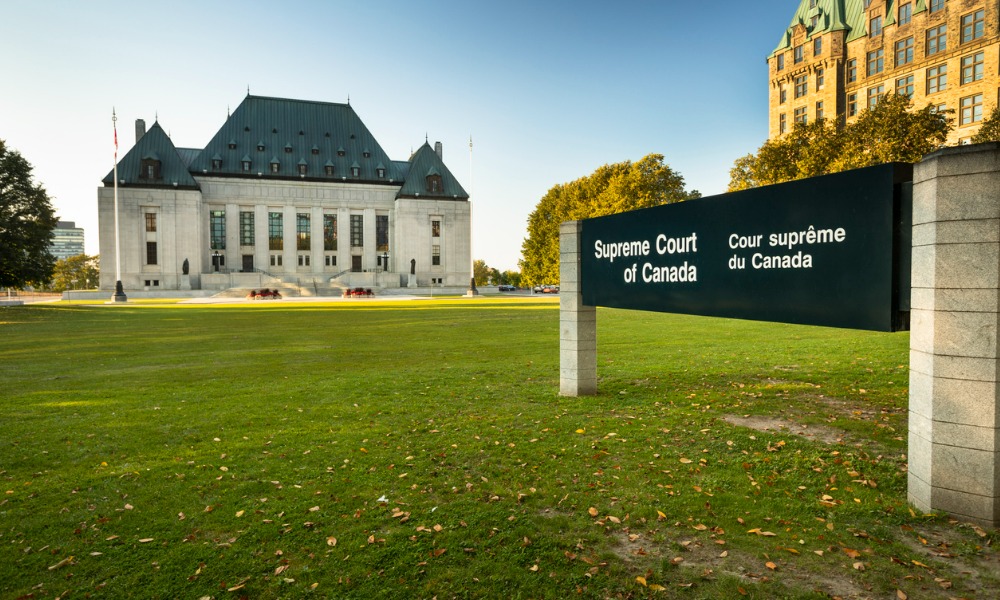Highest court tackles issue of whether admission during voluntary therapeutic process is admissible

This week, the Supreme Court of Canada heard criminal cases that raised questions about the role of amicus curiae and the admissibility of statements made in therapy. Meanwhile, the Federal Court of Appeal dealt with an accreditation case, among others.
Supreme Court of Canada
In Emanuel Kahsai v. His Majesty the King, 40044, the appellant refused to retain counsel during trial. The trial judge appointed two amicus curiae, with whom the appellant refused to cooperate. A jury convicted the appellant of two counts of first degree murder.
The appellant took the case to the Alberta Court of Appeal. The appellant alleged that the trial judge’s failure to appoint partisan amicus curiae early during the proceedings tainted the trial’s fairness. The appellate court’s majority dismissed the appeal. It found no unfairness arising from amicus curiae’s role in the proceedings.
The Supreme Court of Canada heard the appeal on Tuesday. At issue is whether the trial judge’s failure to appoint amicus curiae with an adequate adversarial mandate led to a miscarriage of justice.
In His Majesty the King v. Olivier Chatillon, 40331, the respondent received a conviction for one count of sexual assault against a child. The Court of Quebec held that the prosecution could base its case on the respondent’s admissions to the professionals assessing him as a part of a voluntary therapeutic process.
The Quebec Court of Appeal allowed the respondent’s appeal and acquitted him. The appellate court held that the respondent’s admissions were inadmissible based on its application of the Wigmore test from R. v. Gruenke, 1991 CanLII 40 (SCC), [1991] 3 SCR 263.
Canada’s highest court heard the appeal on Wednesday. The issue was whether the appellate court wrongly found the respondent’s admissions privileged under the Wigmore test and thus inadmissible.
Federal Court of Appeal
The case of Timothy E. Leahy v. Minister of Justice, A-108-21 moved forward on Tuesday. The appellant alleged on appeal that a decision of the Federal Court breached procedural fairness.
In that decision, the Federal Court struck the appellant’s application and ordered an immediate amendment to remove the registrar of the Supreme Court of Canada from the style of cause and to add the justice minister as a named respondent.
The appellant in Sajjad Asghar v. His Majesty the King et al, A-276-20 filed a statement of claim against the prime minister and His Majesty the King. The Federal Court dismissed the claim.
On appeal, the appellant asked the appellate court to set aside the Federal Court’s decision, to permit the action to proceed to a fair trial, and to order the formation of a special panel of judges who clearly understood organized crime. The latest appearance in this case was on Wednesday.
The case of Viaguard Accu-metrics Laboratory v. Standards Council of Canada, A-32-22 arose from a decision denying reinstatement of the appellant laboratory’s accreditation with the Standards Council of Canada. The appellant filed a judicial review application, which the Federal Court struck out.
The appellant took the case to the appellate court. The appellant argued that the Federal Court judge wrongly decided that it failed to exhaust all adequate and available administrative remedies. The most recent appearance in this case was on Thursday.
The respondents in General Entertainment and Music Inc. v. Gold Line Telemanagement Inc. et al, A-76-22 moved to stay the appellant’s action in favour of arbitration in Bermuda. The case management judge dismissed the motion. On appeal, the Federal Court ruled in the respondents’ favour and stayed the action in favour of arbitration.
Before the appellate court, the appellant alleged that the sole reason to stay its action was an arbitration clause in a contract that was null and void, inoperative, or incapable of performance. The latest appearance in this case was on Thursday.










